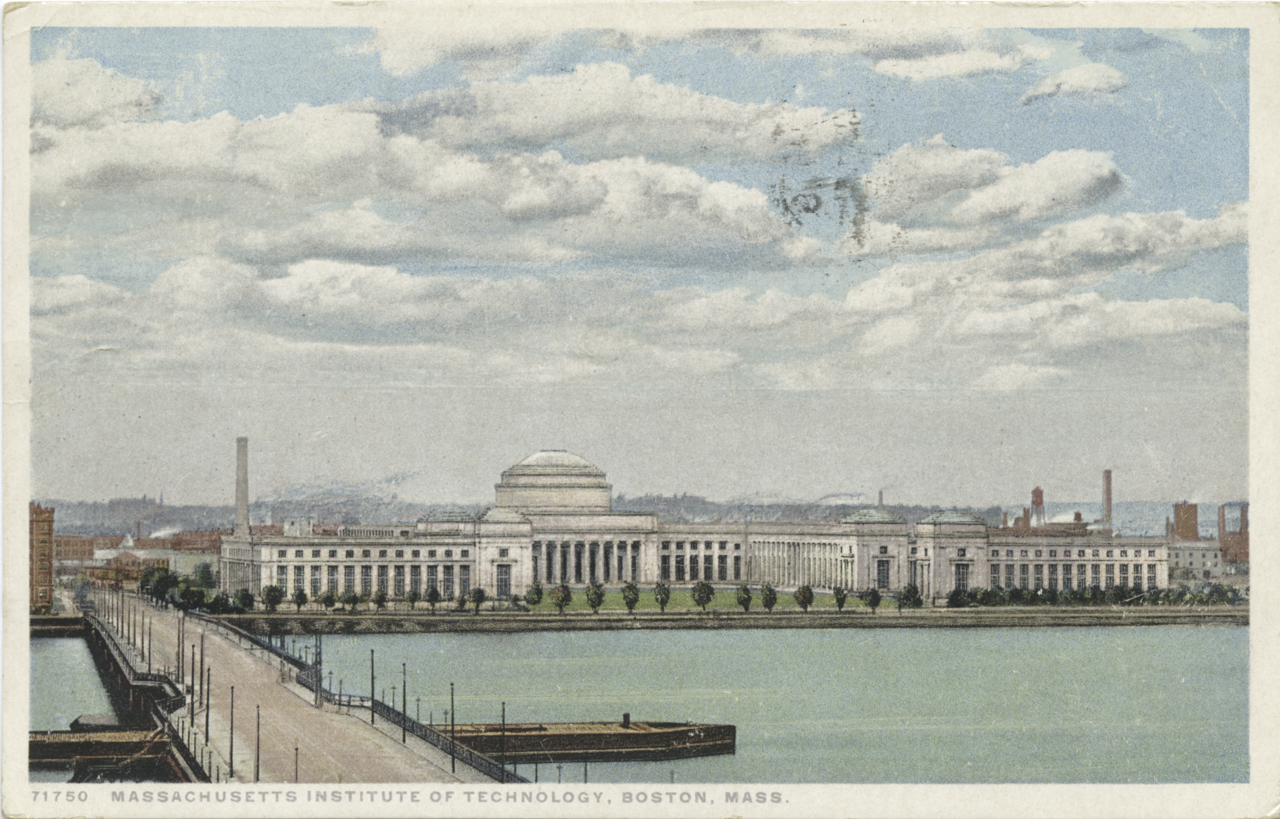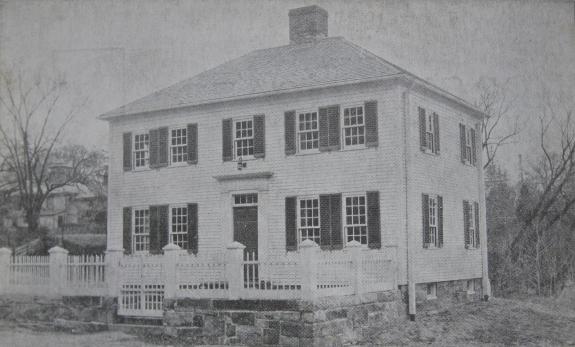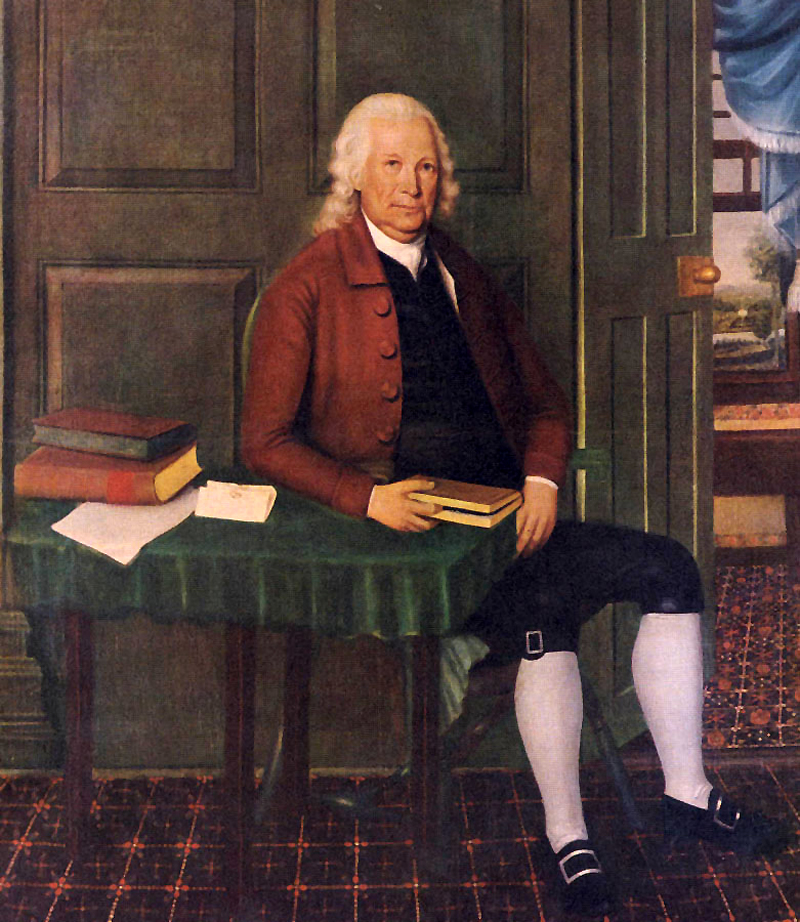is Rider University a good school?

is Rider University a good school?
Rider University is a private institution located in Lawrenceville, New Jersey. Founded in 1865, the university offers a variety of undergraduate and graduate programs across different fields of study. When assessing whether Rider University is a good school, it is important to consider several key aspects that contribute to its overall quality as an institution of higher education.
is Rider University a good school?
Academic Programs and Specializations: Rider University provides a diverse range of academic programs and specializations to meet the needs and interests of its students. The university offers undergraduate majors, professional programs, and graduate degrees across disciplines such as business, liberal arts, sciences, education, fine arts, and communication. The curriculum is designed to provide students with a solid foundation of knowledge and skills relevant to their chosen fields.
Faculty Expertise and Teaching Excellence: Rider University prides itself on its dedicated faculty members who are experienced educators, scholars, and professionals. Faculty at Rider are committed to providing a high-quality education and engaging students in meaningful learning experiences. They bring a wealth of knowledge, industry experience, and research expertise to the classroom, fostering an environment of intellectual curiosity and academic rigor.
is Rider University a good school?
Campus Facilities and Resources: Rider University offers modern campus facilities and resources to support student learning and campus life. The university provides well-equipped classrooms, laboratories, libraries, research centers, and specialized facilities for various disciplines. Additionally, Rider offers comprehensive student support services, including academic advising, tutoring, career counseling, and health and wellness resources.
Experiential Learning and Internship Opportunities: Rider University places a strong emphasis on experiential learning and offers opportunities for students to apply their knowledge in real-world settings. The university facilitates internships, cooperative education programs, research projects, and community engagement initiatives. These experiences allow students to gain practical skills, build professional networks, and enhance their resumes.
Campus Community and Student Life: Rider University fosters a vibrant campus community that offers a variety of student organizations, clubs, and extracurricular activities. These opportunities provide students with avenues for personal growth, leadership development, cultural exploration, and community engagement. Rider also hosts events, guest speakers, artistic performances, and athletic competitions that contribute to a rich campus life.
is Rider University a good school?
Reputation and Accreditation: Moreover, Rider University is accredited by the Middle States Commission on Higher Education (MSCHE). As a result, which ensures that the institution meets established educational standards. However, while Rider may not have the same level of recognition as some larger institutions, it has a history of providing a quality education and preparing students for their professional endeavors.
Conclusion: Rider University offers a comprehensive academic experience with its diverse program offerings, dedicated faculty, and engaging campus community. The university’s commitment to academic excellence, experiential learning, and student support contribute to its reputation as a reputable institution of higher education. Prospective students should research the specific programs they are interested in, explore campus facilities and resources, and consider their individual goals and aspirations to determine if Rider University aligns with their educational and personal needs.
is Rider University a good school?
is Umass Amherst a good school?

University of Massachusetts Amherst. Looking down Stockbridge Road, East Ridge as it appeared circa 1923.
UMass Amherst is a public research university located in Amherst, Massachusetts, United States.

Early photo of Phi Sigma Kappa‘s Alpha chapter, built in 1914 and located at the University of Massachusetts Amherst. From The Signet magazine. For use on the Phi Sigma Kappa and related pages. The building was completely renovated in 2013-14.
Professor Claims Cheating at Rutgers University!!
Considered to be a “good” school, offering a high-quality education at an affordable cost.
is Northeastern University a good school?
History of UMass Amherst:
UMass Amherst, founded in 1863 as the Massachusetts Agricultural College. Over the years, the university has expanded its academic offerings in addition, facilities. Moreover, now one of the largest public universities in the region.

Panoramic view of campus, 1916; in the foreground at the left is the Apiary Laboratory, Fernald Hall, the Old Chapel, and Clark Hall, in the distance to the right can be seen French Hall and Stockbridge Hall
is Umass Amherst a good school?
Prestige of UMass Amherst:
UMass Amherst, a well-regarded institution for its academic rigor. In addition, research excellence, and commitment to sustainability. According to the 2022 US News & World Report rankings. UMass Amherst stood ranked as the 66th best national university in the United States. Furthermore, also ranked as the 34th best public university in the country.
Academic Standards and STEM Offerings:

Elizabeth Warren, United States senator from Massachusetts, in a roundtable at the university. Office of Senator Elizabeth Warren –
UMass Amherst offers a rigorous academic program that emphasizes critical thinking, research, and innovation. The university offers degree programs in a variety of fields, including business, engineering, health sciences, humanities, and social sciences.
UMass Amherst has a strong focus on STEM education and research. Moreover, with degree programs in biology, chemistry, computer science, engineering, mathematics, and physics, among others. The university is particularly well-known for its research in areas such as renewable energy, nanotechnology, and data science.
Admissions Process and Cost:
The admissions process for UMass Amherst is fairly selective. And the university considers a variety of factors in its admissions decisions! Including academic performance, extracurricular activities, essays, and letters of recommendation. The university has a competitive acceptance rate of around 59%.
UMass Amherst is a public university, and as such, it is more affordable than many private universities.
The 2023-2024 estimated cost of attendance for a full-time undergraduate student:

is Umass Amherst a good school?
Including tuition, fees, room, board, and other expenses. The cost of attendance for out-of-state students is higher.
Life in Pioneer Valley and Taking Classes at Amherst College:
UMass Amherst enjoys a locale in the scenic Pioneer Valley, which offers a variety of outdoor activities, cultural events, and opportunities for exploration. Located near other top colleges and universities in the area, including Amherst College! Considered to be one of the top liberal arts colleges in the country. Comparable to the best of the Ivy League.
Is Amherst a good school?
UMass Amherst students have the opportunity to take classes at Amherst College. And other nearby schools through the Five College Consortium. This allows students to broaden their academic horizons and take advantage of the resources and expertise of multiple institutions.
In conclusion, UMass Amherst, most definitely considered a “good” school! Moreover, offering a high-quality education at an affordable cost.
Umass enjoys a place as an attractive option for students in the northeast seeking a well-rounded education and a vibrant campus community.
is Umass Amherst a good school?
is Umass Amherst a good school?
Olin Business School Good?
What is the average GPA for Olin College of Engineering?
MIT ivy league?
Education

Original Rogers Building, Back Bay, Boston, c. 1901
Massachusetts Institute of Technology (MIT) is a private research university located in Cambridge, Massachusetts, United States. Despite often becoming confused with the Ivy League schools. However, MIT is not part of this group. Nevertheless; widely recognized as one of the top universities in the world. Alongside other prestigious institutions such as Stanford, Oxford, and Cambridge.
Disclosure: Rebellion Research did sponsor the MIT Ai & Quant Conference 2022.
History of MIT:

A 1905 map of MIT’s Boston campus. Unknown author – MIT Archives
Founded in 1861 as the Massachusetts Institute of Technology by William Barton Rogers. Initially focused on applied science and engineering, and its goal was to advance the industrial revolution in the United States.
is MIT ivy league?

The then-new Cambridge campus, completed in 1916. Harvard Bridge, named after John Harvard, the founder of Harvard University, is in the foreground, connecting Boston to Cambridge. Detroit Publishing Company – Postcard series number: 71750 Furthermore, this is the MIT Cambridge campus across the river from Boston proper. Completed in 1916. The Harvard Bridge shown in the foreground. 1913?-1918, issued through 1930. Began the ‘contract’ issues, cards produced for museums and other organizations. Permission details. In addition, this image is available from the New York Public Library‘s Digital Library. Under the digital ID 98da4a30-c631-012f-2e4a-58d385a7bc34: digitalgallery.nypl.org → digitalcollections.nypl.org
Moreover, throughout the years, MIT expanded its fields of study. Additionally, became a leader in research and innovation across multiple disciplines. Some of the most notable alumni of MIT include astronaut Buzz Aldrin who earned a degree of Doctor of Science.
In addition, Nobel laureate economist Paul Samuelson, and Apple co-founder Steve Wozniak.
Prestige of MIT:
Widely recognized as one of the best universities in the world. According to the 2021 QS World University Rankings. Ranked as the second-best university in the world. Behind only the University of Oxford.
In the United States, consistently ranked as one of the top universities, along with other elite institutions such as Stanford, Harvard, and Caltech.
One of the reasons for MIT’s prestige is its outstanding faculty. The university has become home to dozens of Nobel laureates and Turing Award winners. Including Richard Feynman, Noam Chomsky, and Tim Berners-Lee. In addition, MIT’s research output is prolific, with hundreds of research papers published every year in prestigious academic journals.
Did Feynman ever meet Einstein?
Another factor contributing to MIT‘s reputation is its strong emphasis on innovation and entrepreneurship. The university has spawned many successful startups, including Dropbox, Intel, and Bose. Also operates the renowned MIT Media Lab. Dedicated to exploring the intersection of technology and art.
Is Williams College better than Harvard?
Finally, MIT’s commitment to diversity and inclusion has also contributed to its prestige. The university has made significant efforts to increase the representation of women and minorities in its student body and faculty. In 2019, MIT launched the MIT Task Force on the Work of the Future. Focused on ensuring that technological advancements benefit everyone and do not exacerbate inequality.
Is Johns Hopkins an Ivy League?
In conclusion, while MIT, not technically part of the Ivy League. However, widely recognized as one of the top universities in the world. Thus, its emphasis on innovation, outstanding faculty, and commitment to diversity. Moreover, contributed to its prestige and influence in the academic and business worlds. Lastly, as such, it stands alongside other prestigious institutions. Such as Stanford and Oxford in a special super elite category.
is MIT ivy league?
American Universities That Are as Good, or Better, than Ivy League Colleges – PhDportal.com
Harvard vs MIT: To Ivy League or Not to Ivy League – Crimson Education US
Is Stanford an Ivy League School? Is Duke? MIT? (prepscholar.com)
What Is the Ivy League? | BestColleges
Is MIT Ivy League? Ranking, Acceptance Rate, and More – collegegazette.com
Is MIT an Ivy League School? – College Jaguar
Test Prep Tutoring | Online Test Preparation | The Princeton Review
2022-2023 Best National Liberal Arts Colleges | US News Rankings
2022-2023 Best National Liberal Arts Colleges | US News Rankings (niche.com)
phillips exeter worth it?
What happened at Phillips Exeter?
A brief reflection on my time as a student.
During my time at Phillips Exeter since early September. I have become exposed to countless new cultures, religions, customs, and people from across the world. In stark contrast to the generally homogenous community of the public high school I attended before coming to Phillips Exeter. I can say with certainty that never before coming to Phillips Exeter did I sit around a Harkness table with people from up to four different continents at the same time, and discuss the pressing issues that our society faces today. It has broadened my horizons greatly. And allowed for me to obtain a greater understanding of the world I live in.
As the math problems I faced in classes became increasingly difficult throughout my highschool years, I looked for help. I sought help from teachers, textbooks, online learning services, parents, as well as peers. Having a classmate or older student explain complex problems to me almost always yielded a stronger understanding than any of the other aforementioned methods.
For this reason, when I became given the opportunity to become a math peer tutor in my freshman year of high school. I graciously accepted. It began a bit rocky! As my level of understanding in certain areas was often less than or equal to the students who I was trying to help. However, this led me to seek a deeper understanding in all the topics I learned about. As a result, I was always able to assist those who came to me. It drove me to dig deeper. Furthermore, answer the “why” of every problem I encountered. Rather than just memorizing a method to get the right answer. This skill has served me well in many facets.
How hard is it to get into Phillips Exeter Academy?
How hard is it to get into Phillips Exeter Academy?

View from tower of Phillips Church, Exeter, New Hampshire. At right is the 3rd Academy Building, designed by the Boston architectural firm of Peabody & Stearns. Built to replace the 2nd Academy Building. Which burned on December 20, 1870, and would itself burn on July 4, 1914. In the distance is the Squamscott River.
Phillips Exeter Academy, located in Exeter, New Hampshire, is a prestigious, highly selective, co-educational independent boarding school. Widely regarded as one of the most academically rigorous and competitive schools in the United States. Admission to Phillips Exeter Academy is a challenging process that requires dedication and effort from applicants. This essay will explore the application process, the factors that the school considers when making admission decisions, and the level of difficulty of getting into Phillips Exeter Academy.
The application process for Phillips Exeter Academy is comprehensive and rigorous, involving multiple stages. The first stage of the process is the submission of the application, which includes essays, transcripts, standardized test scores, recommendations from teachers, and an interview. The application process is highly competitive, with the school receiving thousands of applications every year, and only admitting a fraction of the applicants.

When making admission decisions, Phillips Exeter Academy considers a range of factors, including academic achievement, extracurricular activities, character, and potential for leadership. The school looks for students who have demonstrated exceptional academic achievement, as well as a commitment to intellectual curiosity and academic rigor. Additionally, the school values students who have shown leadership potential through their involvement in extracurricular activities, community service, and other forms of engagement.
The level of difficulty of getting into Phillips Exeter Academy is high, with an acceptance rate of around 15%. As a result, means that out of thousands of applicants, only a small fraction will become admitted. The school is highly selective! And looks for students who are not only academically strong but also demonstrate leadership potential, intellectual curiosity, and a commitment to serving their communities.

E. Chickering & Co. – http://lcweb2.loc.gov/cgi-bin/query/I?
The school’s high level of academic rigor and selectivity makes it an attractive option for students who are seeking a challenging and rewarding academic experience. However, it also means that the application process is highly competitive. In addition, applicants need to become well-prepared and dedicated to their studies and extracurricular activities.
In conclusion, getting into Phillips Exeter Academy is a challenging process that requires dedication, effort, and commitment from applicants. The school is highly selective and values academic achievement, leadership potential, and character.

Abraham Lincoln – http://memory.loc.gov/mss/mal/mal3/434/4340100/001.jpg
The application process is comprehensive and rigorous, involving multiple stages and requiring applicants to demonstrate their abilities and potential. While getting into Phillips Exeter Academy is challenging. It is also a highly rewarding experience for students who are seeking an academically rigorous and stimulating environment.
How hard is it to get into Phillips Exeter Academy?
What does it mean to be an ‘Exonian’ or Phillips Exeter’s best students?
Culture is a complex anthropological concept. John Monaghan, in his book Social and Cultural Anthropology: a Very Short Introduction, writes that “there have probably been more anthropological definitions of ‘culture’ than there have been anthropologists.” From this, it is clear that even at the scholarly level, there is difficulty nailing down an all-encompassing definition for the term.
Evidently, there will exist similarities between different definitions of culture, which can become used to generally characterize what is, and what is not culture. Through these similarities that a working definition for culture will become synthesized, and used to analyze the origins of cultural identity at Phillips Exeter Academy.
Also in Social and Cultural Anthropology: a Very Short Introduction, Monaghan says that:
“however we define culture, most anthropologists agree that it has to do with those aspects of human cognition and activity that are derived from what we learn as members of society, keeping in mind that one learns a great deal that one is never explicitly taught.” Here, the insinuation, that culture is a summation of thoughts and actions learned over time. And also that it becomes learned indirectly, rather than taught in something akin to a classroom environment. The idea of learning culture is studied more in depth by Katherine Dettwyler in Cultural Anthropology and Human Experience: The Feast of Life. She says that culture can be simplified into three categories: what’s inside people’s heads, what people do, and what people make.
Within the first category, she emphasizes that culture learned, shared, and patterned.
Moreover, it becomes learned because culture isn’t steadfast, it is constantly changing. Culture becomes shared since individuals will have overlap in terms of the beliefs, knowledge, and attitudes. Which help them identify with a particular group. Culture becomes patterned because “we find organized systems of thought and belief. Patterns of thinking and systems of knowledge, not just a random hodgepodge of factoids and unrelated ideas.” Specifically, it is this pattern of ideas and factoids that gives culture significance.
Comparing the two expanded definitions of culture from both Monaghan and Dettwyler, a few concepts are clear. Culture is not instantaneous.
That is to say, it takes time to develop. Also, there is no explicit teaching. But rather ingrained into the individual by the society in which they exist. Moreover, logically, the next question is how exactly culture becomes ‘ingrained’ into an individual.
In the book The Best of The Best, the author Ruben Gatzambe-Fernandez explores the development of cultural identities at “Weston”, a pseudonym for the elite boarding school Phillips Exeter Academy, or “Exeter”. He evaluates admissions, language, and framing, in his consideration of how a student comes to identify themselves with Exeter, which is most often through the use of the term “Exonian”.
The first step towards a student identifying themselves as an Exonian, and thus a member of the group of people which form the culture at Phillips Exeter, is the admissions process.

Students, not made aware of the explicit reason that they become admitted to Exeter when they receive notice of admission. The effects of this are twofold. One, it disbands the possibility of a student who did not become admitted comparing themselves to those who were with specific evidence as to why.
Secondly, “it is the initial step toward internalizing the notion that, while ‘Weston is not for everybody,’ it is certainly for them.” The offer of admission confirms this notion in the student’s mind. It is a rite of passage, meaning it represents a passing from one world to another, in this case, the transition into Exeter from a different school environment.
Within the broad category of rites of passage, there exists a subgroup of transition rites, exemplified by the likes of betrothal, or in this case, initiation.
After students receive their admissions letter, students reflect on why they belong at Exeter. Jack Mitchell, one of Fernandez’ interviewees, attributes his acceptance to his willingness to have meaningful discussions. In his admissions interview, he recalls saying:
“I feel that I always have things to say, and if I don’t have things to say, I’m interested in what someone else has to say.”

As Fernandez mentions often, discussion skills are crucial to becoming Exonian, and Jack is trying to show that he has what it takes.
When Jack is explaining why he believes he belongs at Exeter, he is legitimizing his presence there.

The term Legitimation, as defined in Peter Berger’s The Social Construction of Reality is “this process of ‘explaining’ and justifying.” In this instance, legitimation takes the form of spoken language, and allows Jack to rationalize his place at Exeter. He reasons that because he is good at discussion, one of the key parts of becoming an Exonian according to many students interviewed by Fernandez, he deserves to be at Exeter.
Post admission, and the legitimation of their own personal place in the ranks of Exeter students, individuals continue to construct their cultural identity through language. “Language might become called the domain of articulations … Language can also become compared with a sheet of paper: thought is the front and the sound the back; one cannot cut the front without cutting the back at the same time.”
Furthermore, Language becomes connected to thoughts. Which are key to internalizing a particular cultural identity. The word that Fernandez found most intertwined to the cultural identity of Exeter students is “smart”. A good way to see this becomes through the constructing of boundaries between groups on campus. Who become considered “smart”, and those considered not. “Students use the category of PG as a way to distinguish and draw boundaries around themselves as Westonians who are smart and work hard.” The word smart becomes associated with exclusively students who are not of the PG category.
Since most students view PGs as “Weston students who are not Westonians”. As a result, distinguishing themselves from PGs thus makes a student more “Westonian”.

In essence, language becomes used to reinforce their cultural identity as Westonian. As a result of separating themselves from the group considered not to be. In addition to language, there is another underlying anthropological concept in this method of cultural identification. It is framing. Frames “are mental structures that shape the way we see the world.” An example of a frame would be that Ethan is a PG, so Ethan is dumb. As a result, allows individuals to reinforce their own ideas about culture.
Culture has no unilateral definition.


However, the case study of Phillips Exeter provides great insight into what exactly culture has manifest itself into. Additionally how it becomes constructed. Furthermore, students at Exeter begin as outsiders. Thus, begin the creation of their cultural identity as Exonians upon acceptance to the institution. From there, they legitimize their presence.
In conclusion, language structures to separate themselves from those considered not Exonian. And thus, more closely associating themselves with the term. Furthermore, it is a process that takes time, as culture is not instantaneous. Lastly, through what they think, what they do, and what they make. Exeter students slowly come to associate themselves with the cultural identity of an Exeter student, being Exonian.
Phillips Exeter Academy | Exeter
is Umass Amherst a good school?
is Umass Amherst a good school?
How to Get Into Phillips Exeter Academy – Test Innovators
is Umass Amherst a good school?
is Umass Amherst a good school?
Phillips Exeter Academy – Acceptance Rate, Tuition, Ranking, and More – collegegazette.com
is Umass Amherst a good school?
is Umass Amherst a good school?
Most Selective Boarding Schools in America (businessinsider.com)
is Umass Amherst a good school?
is Drew University a good school? (rebellionresearch.com)
Rose Hulman a good school?
is Northeastern University a good school?
2022-2023 Best National Liberal Arts Colleges | US News Rankings
is Fairleigh Dickinson a good school? – Rebellion Research
U.S. News Announces 2022 Best Global Universities Rankings (prnewswire.com)
is Rowan University good? (rebellionresearch.com)
Fairfield University a good school?
World University Rankings 2021-22 | Global 2000 List | CWUR
The world’s top 100 universities | Top Universities
is Eastern Connecticut a good school? (rebellionresearch.com)
is Post University a good school? (rebellionresearch.com)
Find 85000+ Masters Worldwide: all MBA, MSc., MA, LLM, MPhil and other postgraduate programmes – Mastersportal.com
UMass tuition will increase for 2023-24 academic year – Massachusetts Daily Collegian
is Ramapo College a good school? (rebellionresearch.com)
College Search – BigFuture | College Board
is Centenary University a good school? (rebellionresearch.com)
University of Massachusetts-Amherst – Tuition & Fees, Net Price (collegetuitioncompare.com)
is Sacred Heart University a good school? (rebellionresearch.com)
is University of St Joseph a good school? (rebellionresearch.com)












:no_upscale()/cdn.vox-cdn.com/uploads/chorus_image/image/72339642/1253343348.0.jpg)
